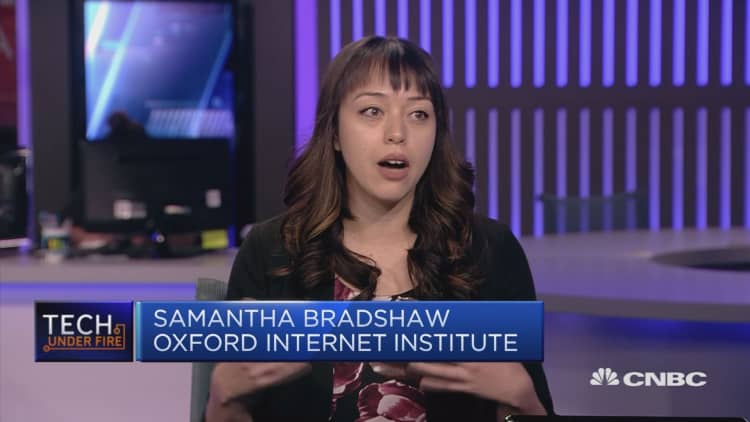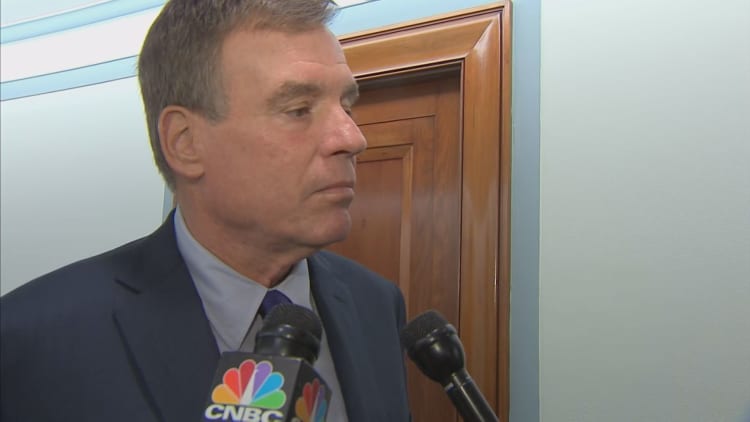
President Donald Trump's claim that Google is biased against him and other conservatives is a distraction from the bigger issues facing technology giants, an academic told CNBC Wednesday.
"I think Trump's comment about Google's algorithm being biased really distracts from a lot of these bigger debates that we need to be having as a society about how Google's algorithms — as well as Facebook and Twitter and all these social media platforms — how they are really shaping our lives, how we interact with one another on social media, how we find political news and information," Samantha Bradshaw, a researcher for the computational propaganda project at the Oxford Internet Institute, told CNBC's "Squawk Box Europe."
"There are some really deep questions here and Trump's claims about bias really distract away from some of those deeper, meaningful questions," she added.
The U.S. leader last week accused Google of rigging search results to prioritize negative coverage and left-leaning news outlets. He warned the issue "will be addressed," suggesting regulatory consequences for social media companies.
Trump then mentioned rivals Facebook and Twitter by name, saying all three companies were "treading on very, very troubled territory and they have to be careful." All three platforms have denied political bias in the algorithmic tailoring of news content.

Bradshaw said that Trump's comments turned attention away from some of the more hard-hitting issues surrounding big tech. These include the fear that social media platforms were manipulated by foreign actors to meddle in elections, the distribution of fake news and other misinformation, and the data-driven microtargeting of voters with political advertising.
"Social media allows us to target a wide group of people while simultaneously microtargeting individuals based on their interests, their behaviors, their values," Bradshaw said.
She added: "We see fake accounts — what we call political bots — being used to amplify all these stories — fake news stories, fake content — to generate this false sense of popularity or momentum or relevance around a particular idea or issue."
"But we do also then see these targeted advertisements going to very specific individuals, communities of people, who hold certain values, and these messages are then being used to polarize communities between each other."
Bradshaw added that government, as well as tech firms, should do more to try to prevent or mitigate such issues as election meddling and microtargeting. She said a return to traditional political media ads would be healthier for democracy than dubious practices online.
Big tech faces Congress
C-Suite executives from social media giants Twitter and Facebook appeared before U.S. lawmakers on Capitol Hill Wednesday — but a seat reserved for Google was left empty.
Twitter provided its Chief Executive Jack Dorsey to appear in front of the U.S. Senate Intelligence Committee, while Facebook sent Chief Operating Officer Sheryl Sandberg. Google has so far only offered up its top lawyer, Kent Walker, to which the committee declined, saying he wasn't high-level enough.
Senator Mark Warner, vice chairman of the Intelligence Committee, said in a tweet Tuesday that Alphabet Chief Executive Larry Page "should be there too." "It's not too late for @Google to step up," the Democrat lawmaker added.
The committee intentionally placed an unoccupied seat at the hearing to shame the company for not sending Page or Google CEO Sundar Pichai. Senators blasted the company on Wednesday for not sending a high-level executive.


